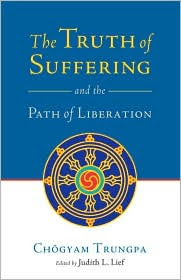For that, I'm going to refer to my all-time hero in Buddhism - Chogyam Trungpa. See book below.

I found his exposition of the kleshas, conflicting emotions that lead to suffering, particularly interesting. The kleshas themselves are nothing new - there have been tons of exposition on the six main conflicting emotions - desire, anger, pride, ignorance, doubt and opinion.
According to Trungpa, kleshas are one of two kunjung, or origins of suffering - the other one being the kunjung of karma. The kunjung of kleshas could be considered the birth of the kunjung of karma. They are the initial point, the starting of karma, one could say. So understanding kleshas is a good place to stop creating the kunjung of karma. In English: If you stop the emotions fast and early, they don't develop into patterns engraved into the mind stream, or karma.
The most fascinating thing is that the kleshas themselves arise out of a basic stupidity, or bewilderment. This, in my interpretation, is that there is a basic non-awareness about self and states (i.e. reality), of not knowing what to do, which is independently existent. We go about in this state, not really knowing what to do. There is an uncertainty about it, but not quite outright confusion. Then, there is a "sudden flickering of thought", according to Trungpa. It makes you very passionate and lustful. (Note the interesting fact here - passion is actually a function of suffering in this model.)
Hence, desire is born. Unfulfilled desire leads to anger. Anger and desire fuel pride as a self-preservation mechanism. Ignorance then arises as a strategy to continue, to close one's eyes to things that are contrary to the world view. Ignorance then develops into doubt - the avoidance of alternatives and advice. Finally, it forms a full-fledged opinion. In terms of the manifestation, the conscious awareness is now well and truly rooted in a fixed energy pattern.
What does this have to do with manifestation? Consider that manifestation is basically a topic about fulfilling one's desires. By engaging it, one jumpstarts the whole process of the kunjung of the kleshas. See the paradox?
No comments:
Post a Comment